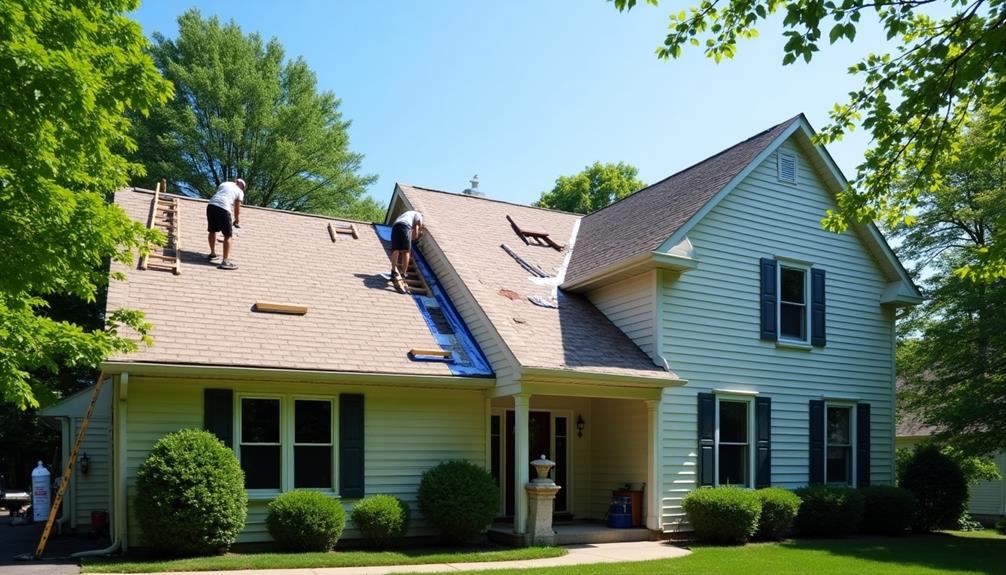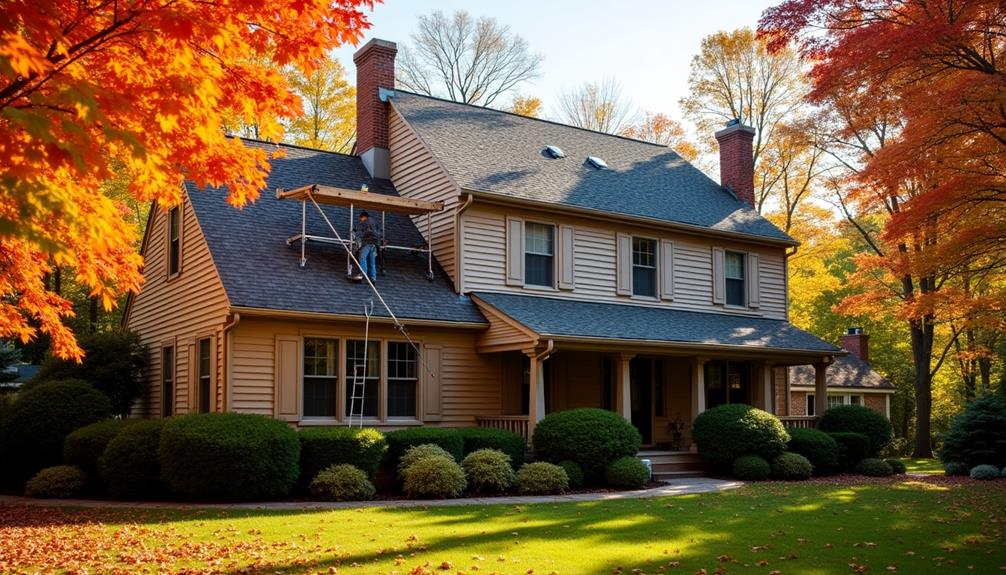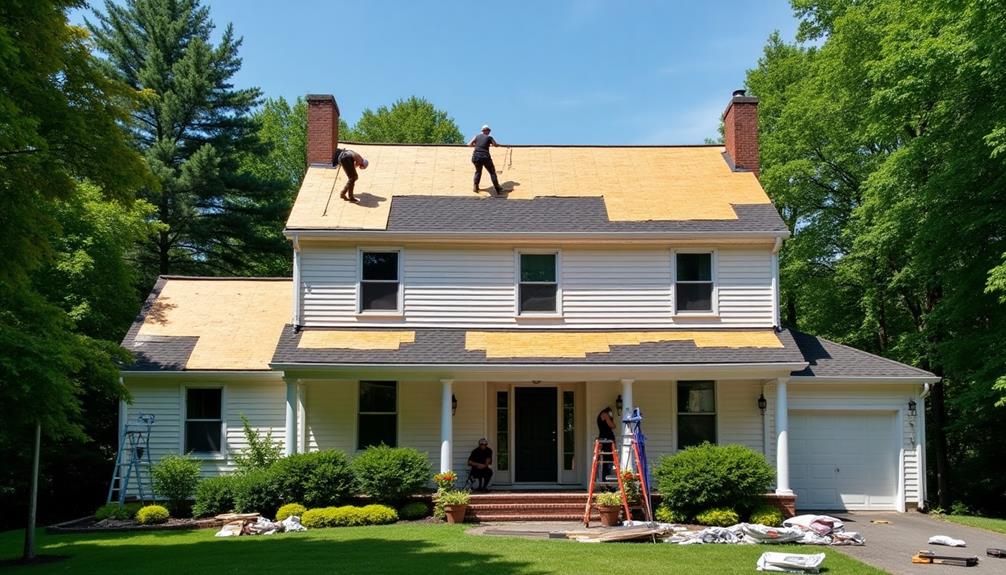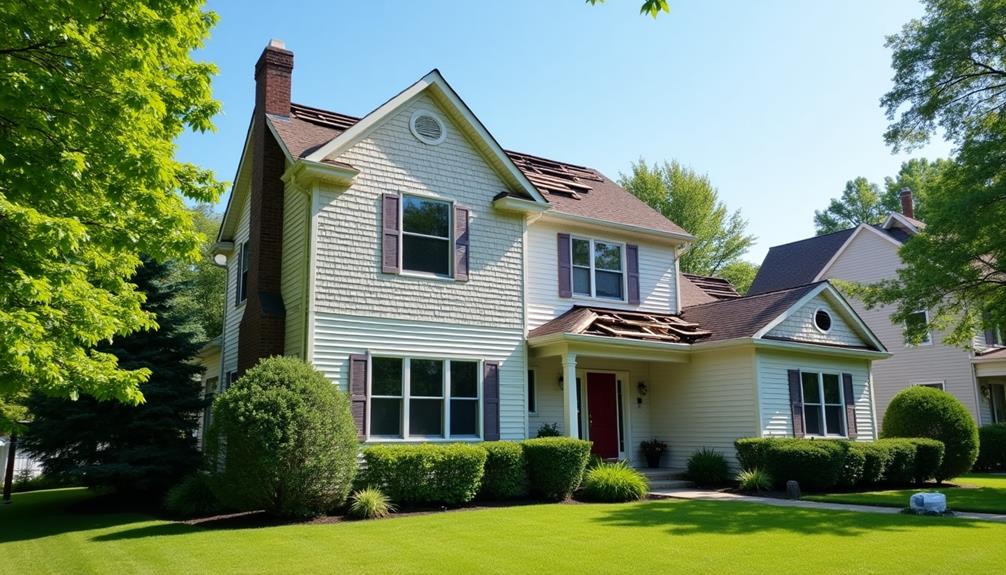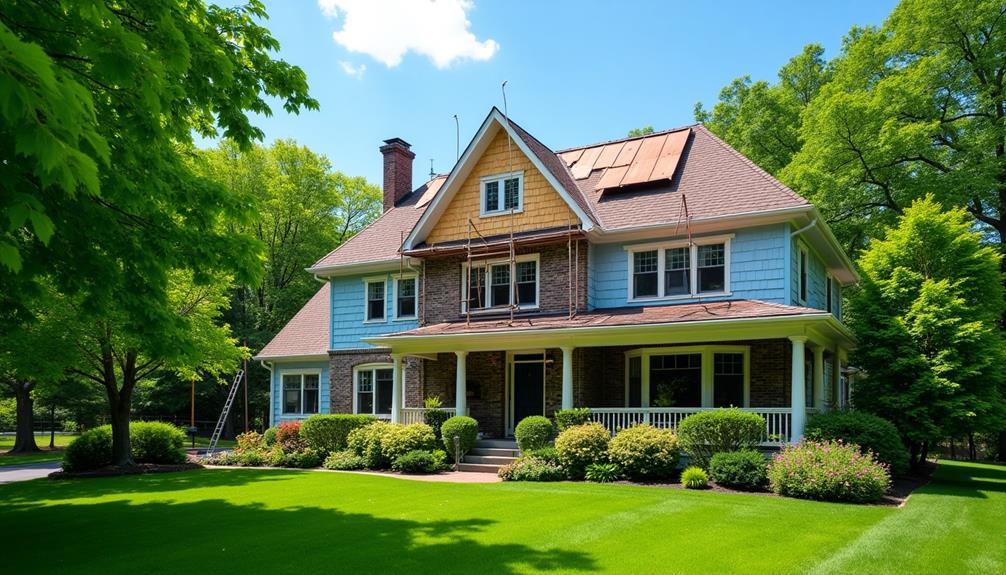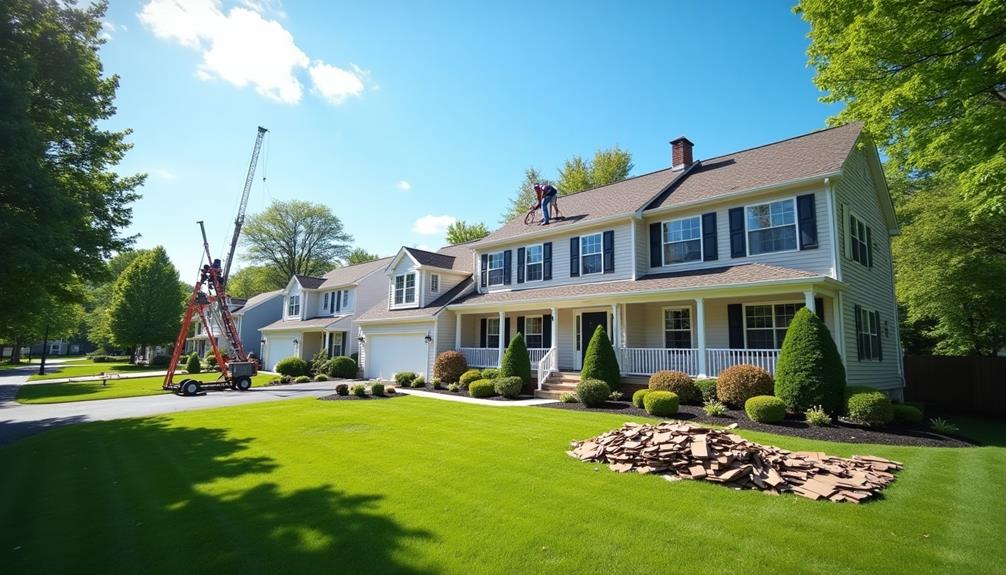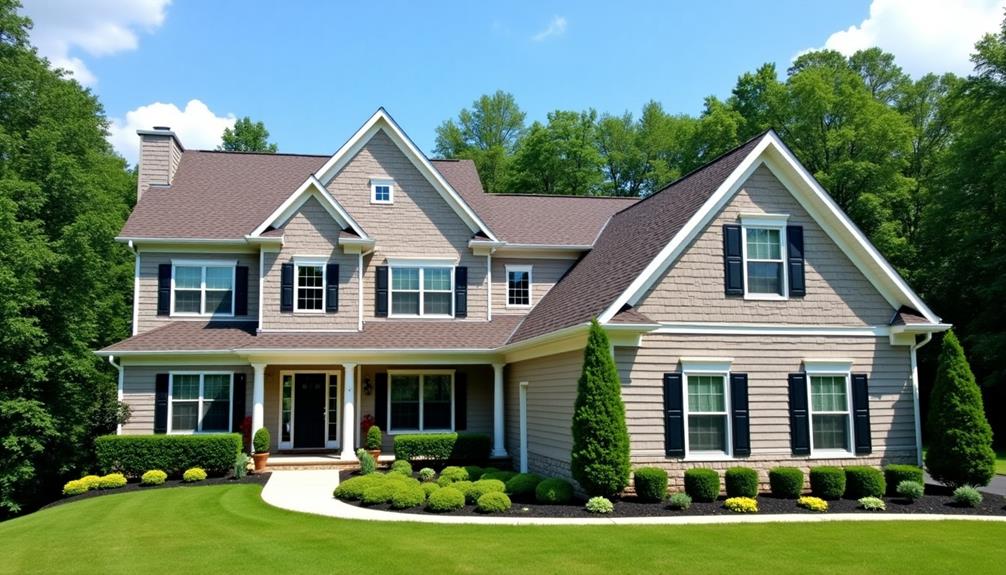If you're considering a roof replacement in Monroe Township, NJ, it's crucial to assess your roof's condition first. Look for signs like missing shingles, leaks, or granule loss. These can indicate the need for replacement, especially if your roof is over 20 years old. Popular materials such as metal and asphalt shingles offer durability and energy efficiency. When choosing a contractor, verify their credentials, request quotes, and check references. Budgeting is also key; set aside funds for unexpected costs. To ensure a successful project, understanding your options and the process can make all the difference.
Reasons for Roof Replacement
When it comes to maintaining your home, understanding the reasons for roof replacement is crucial. Your roof's lifespan is typically around 20 to 25 years, depending on the materials used and the environmental conditions it endures. Over time, exposure to varying weather patterns—like heavy rain, snow, or intense sun—can significantly impact your roof's integrity.
If you notice signs of wear, such as missing shingles, leaks, or granule loss, it's essential to assess the situation promptly. Ignoring these issues can lead to more extensive damage, including structural problems, mold growth, and increased energy costs.
Additionally, if your roof has undergone several repairs, it may be more cost-effective to replace it rather than continue patching it up. Consider also how your roof's performance affects your home's overall energy efficiency. An aging roof mightn't provide adequate insulation, leading to higher utility bills.
Ultimately, regular inspections and understanding the factors influencing your roof's lifespan will help you make informed decisions. Prioritizing timely roof replacement can safeguard your home from further damage and ensure its long-term value.
Popular Roofing Materials
Understanding the reasons for roof replacement naturally leads to considering the various roofing materials available. When you're exploring your options, two of the most popular choices are metal roofing and asphalt shingles. Each material has distinct attributes that can impact your decision.
Metal roofing is known for its durability and longevity. It can withstand extreme weather conditions, making it an excellent choice for homeowners who prioritize performance. Moreover, metal roofs are energy-efficient, often reflecting solar heat, which can reduce cooling costs in the summer months.
With various styles and colors available, you can achieve an aesthetic that complements your home.
On the other hand, asphalt shingles are the most common roofing material in the United States. They offer affordability and ease of installation, making them a favorite among many homeowners.
Asphalt shingles come in a variety of colors and styles, allowing for customization to fit your home's design. Additionally, they provide decent durability, typically lasting 20 to 30 years with proper maintenance.
Assessing Your Roof's Condition
To effectively determine if your roof needs replacement, it's crucial to assess its condition thoroughly. Begin with a comprehensive roof inspection to identify any signs of damage. Look for missing shingles, cracks, or leaks, as these issues can lead to further complications if left untreated.
Performing a damage assessment is essential for understanding the extent of wear and tear on your roof. Here's a quick reference table to help you identify common issues:
| Issue | Indication |
|---|---|
| Missing Shingles | Exposed areas on the roof |
| Cracked or Curled Shingles | Deformation or visible cracks |
| Water Stains | Signs of leaks on ceilings or walls |
| Moss or Algae Growth | Growth on shingles indicating moisture retention |
If you notice any of these problems during your inspection, it's vital to address them promptly. Regularly assessing your roof's condition not only prolongs its lifespan but also helps you make informed decisions about potential replacements. By staying proactive, you can ensure a safer, more durable roof over your head.
Finding the Right Contractor
Finding the right contractor for your roof replacement is crucial for ensuring quality work and lasting results. Start by verifying contractor credentials, including licenses and insurance. This step protects you from liability and ensures the contractor is qualified to perform the work. You can also check for certifications from reputable roofing manufacturers, as these often indicate a higher level of expertise.
Next, request a detailed project timeline. A reliable contractor should provide a clear schedule outlining key milestones, from the initial assessment to project completion. This transparency helps you manage expectations and ensures that the project progresses smoothly.
Don't hesitate to ask for references and review their past work. Speaking to previous clients can give you valuable insights into their reliability, quality of work, and adherence to timelines. Additionally, consider obtaining multiple quotes to compare not just prices but also the scope of services offered. This allows you to make an informed decision.
Lastly, trust your instincts. If something feels off during your interactions, it's worth reconsidering. The right contractor will communicate effectively and prioritize your needs throughout the roof replacement process.
Budgeting for Your Project
Budgeting for your roof replacement project involves careful planning and a thorough assessment of costs. Start by obtaining accurate cost estimates from multiple contractors. This helps you understand the market rates and ensures you're not overpaying. Typically, the total cost will include materials, labor, and any additional services like disposal of old roofing.
Next, consider your financing options. If the project exceeds your budget, explore loans or payment plans offered by contractors. Many companies provide financing that allows you to spread payments over time, making it easier to manage your cash flow. You should also check with local banks or credit unions for home improvement loans with competitive interest rates.
It's essential to set aside a contingency fund—around 10-15% of your total budget—to cover unexpected expenses during the project. Factors like hidden damage or changes in material choice can impact your final costs.

